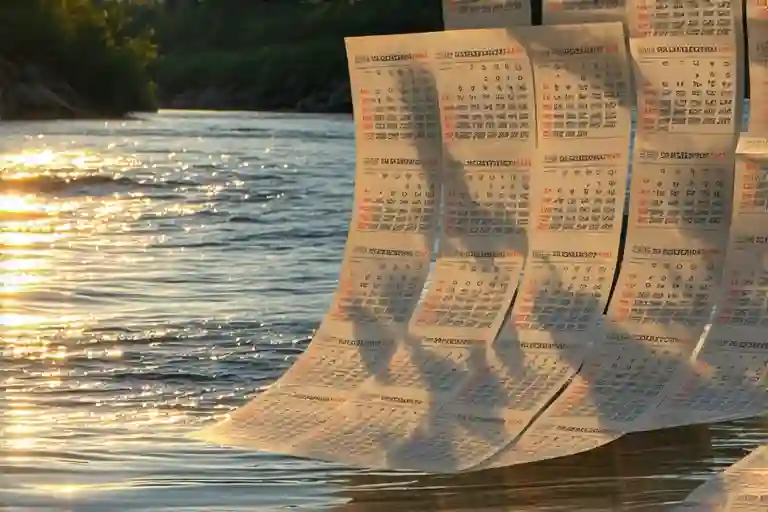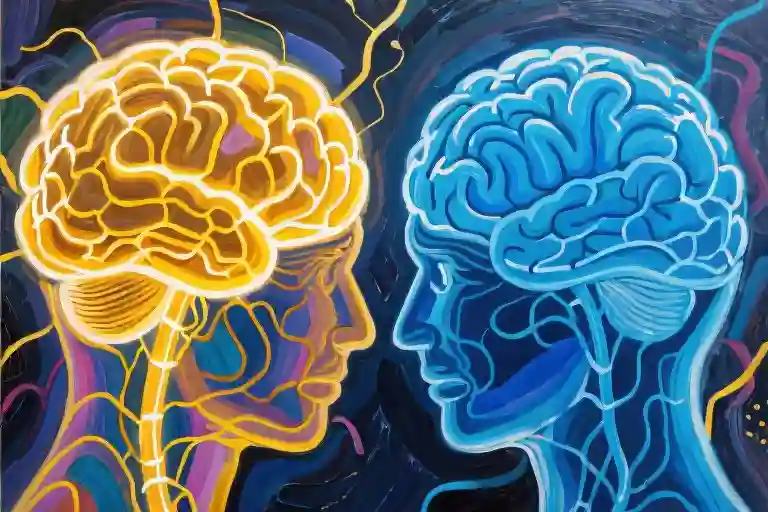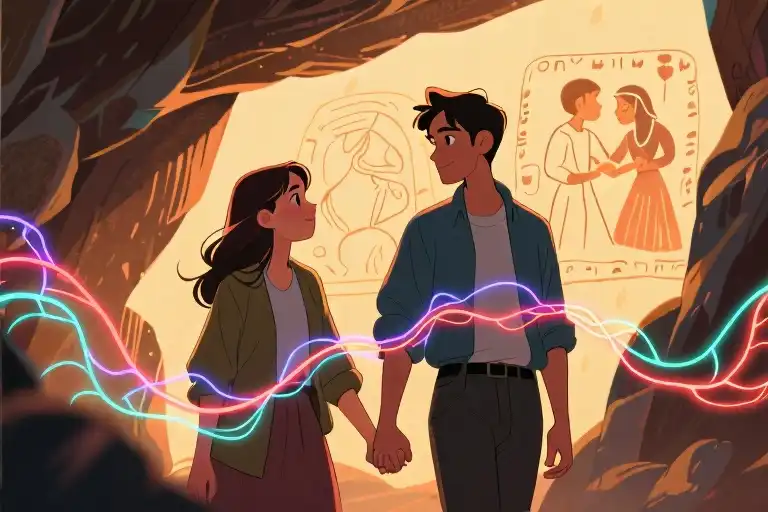The planner sits surrounded by color-coded calendars, their meticulously crafted annual goals glaring back with silent accusation. According to a 2023 study by the American Psychological Association, 68% of goal-setters experience heightened anxiety when tracking progress—not because they’re failing, but because the very act of measuring turns living into a perpetual self-audit.
There’s an uncomfortable truth hidden beneath our productivity apps and vision boards: What if the freedom we crave begins when we stop insisting life must have a predefined purpose? Not the nihilistic abandonment of direction, but the liberating recognition that existence carries its own intelligence far beyond our mental blueprints.
Consider how children learn to walk—no five-year plan, no milestone spreadsheets, just an organic unfolding of capacity through joyful experimentation. Modern adulthood has inverted this natural wisdom, replacing trust with targets. We’ve become so preoccupied with navigating that we forget the river knows its course.
This exploration won’t offer another self-improvement manifesto. Instead, we’ll examine:
- Why the question “What’s my life purpose?” might be misleading from the start
- How neuroscience confirms we’re participants rather than authors of our decisions
- Practical ways to shift from frantic doing to attuned being
The paradox? Those who stop treating life like a problem to solve often find solutions emerging effortlessly. Like trying to recall a forgotten name—the harder you grasp, the farther it retreats. What happens when we release our grip entirely?
The Illusion of Purpose
We live in a world obsessed with goal-setting. From childhood career days to corporate OKRs, we’re conditioned to believe that a well-defined purpose is the hallmark of a meaningful life. Yet beneath this cultural consensus lies an uncomfortable truth: our most profound moments often arrive unannounced, like unexpected guests at a party we didn’t plan.
Consider how Puritan work ethic evolved into today’s productivity cult. The same religious fervor that once measured salvation through hard work now manifests as LinkedIn hustle porn and bullet journal aesthetics. We’ve created elaborate systems to quantify our existence – productivity apps that track our minutes, wearables that score our sleep, social media that ranks our popularity. In this KPI-driven reality, admitting you don’t have a five-year plan feels like confessing a mortal sin.
Eastern and Western philosophies converge on this point through different paths. Zhuangzi’s famous parable of the useless tree – spared the ax precisely because it served no practical purpose – mirrors Sartre’s radical freedom, where meaning isn’t discovered but created through action. Both traditions suggest that what we call “purpose” may simply be a story we tell ourselves to ease the vertigo of existence. The contemporary twist? Our stories now come with quarterly review cycles.
Neuroscience adds another layer to this puzzle. Studies on volition show our brains initiate actions before conscious awareness kicks in – like a theater where the audience (our conscious mind) believes it’s directing the play, while backstage (our unconscious) has already set everything in motion. This doesn’t render choice meaningless, but recontextualizes it as participation rather than origination.
When we stop claiming ownership of our purposes, something paradoxical occurs. The marketing executive discovers her passion for urban farming during a mandated sabbatical. The burned-out programmer stumbles into teaching through a canceled project. These aren’t failures of planning, but evidence of life’s intelligent unfolding – what psychologist Carl Rogers called “the formative tendency” in all living things.
Perhaps true freedom begins when we stop trying to be authors of our lives and become attentive readers instead. Not passive, but deeply responsive – like jazz musicians who master scales precisely to forget them, or gardeners who understand that most growth happens underground, unseen. In this space beyond purpose-making, we might discover what theologian Howard Thurman meant when he wrote: “Don’t ask what the world needs. Ask what makes you come alive, and go do it. Because what the world needs is people who have come alive.”
This isn’t an argument against direction, but for a different kind of navigation – one that trusts the compass more than the map. After all, rivers don’t need GPS to reach the ocean.
Who Is Really Making the Decisions?
The moment your fingers began scrolling this page, did you consciously decide to move each muscle? Or was there simply an impulse to read, followed by your body complying? This unsettling question lies at the heart of our exploration—the illusion of being in control.
Neuroscience reveals a humbling truth through Benjamin Libet’s famous 1980s experiments. Electrodes attached to participants’ heads detected brain activity initiating hand movements a full 500 milliseconds before subjects reported making a conscious decision. Your brain essentially whispers to itself, ‘Let’s raise that hand,’ then politely informs ‘you’ afterward, creating the comforting fiction of volition.
Artists understand this paradox intimately. Novelists describe characters ‘writing themselves,’ musicians speak of melodies ‘coming through’ rather than being composed. The poet Rilke confessed in letters: ‘If my devils are to leave me, I’m afraid my angels will take flight as well.’ Creative breakthroughs consistently occur not when we strain, but when we become conduits.
Consider those inexplicable moments when life arranges itself perfectly—the chance encounter that leads to a career shift, the wrong turn that avoids an accident. Swiss psychologist Carl Jung called this phenomenon synchronicity, where external events mirror internal states without causal explanation. A friend recently missed her flight after obsessively checking departure times, only to discover the plane had mechanical issues. ‘The universe,’ she mused, ‘has better itinerary apps.’
This isn’t to suggest we’re marionettes. Rather, consciousness may function less like a CEO and more like a corporate communications department—interpreting decisions made elsewhere, crafting press releases to maintain the myth of centralized control. Your prefrontal cortex excels at creating plausible narratives for actions initiated by deeper, older brain regions.
Three observable patterns emerge:
- Body Wisdom: Digestion, wound healing, even blinking—essential functions operate flawlessly without managerial oversight
- Flow States: Athletes and performers describe being ‘in the zone’ when thinking stops and instinct takes over
- Automaticity: From driving familiar routes to typing passwords, complex behaviors eventually bypass conscious direction
The discomfort this realization provokes mirrors a child learning their parents aren’t omnipotent. Yet this apparent loss of control paradoxically grants freedom—like realizing you’ve been swimming against the current while the ocean was willing to carry you all along. Tomorrow morning, try observing how many ‘decisions’—from which foot steps out of bed first to whether to scratch an itch—truly originate from what you consider ‘you.’
Perhaps agency isn’t about making things happen, but skillfully cooperating with what’s already unfolding. As the Zen proverb goes: ‘You are the sky. Everything else—it’s just the weather.’
Becoming Life’s Co-Creator
We spend our days convinced we’re conducting the orchestra of our lives, waving the baton of intention with self-important flourish. Yet beneath our conscious directing, the body hums along without our permission – lungs expanding, wounds healing, pupils dilating. These autonomic processes offer the first tangible evidence that we’ve never been sole authors of our existence.
Beginner’s Mind: The Body’s Wisdom
Start with this simple practice tonight: as you lie in bed, place one hand on your abdomen and one on your chest. Observe the rise and fall without attempting to alter the rhythm. Notice how:
- Your diaphragm moves without your conscious instruction
- Your heartbeat adjusts to your observation (proving the observer effect)
- Your digestion continues its alchemy whether you ‘remember’ to metabolize or not
This isn’t passive resignation but active recognition of the partnership. Like a child realizing their bicycle stays upright through both their pedaling and invisible physics, we begin to sense the supporting currents in our daily walk.
The Unplanned Day Experiment
Schedule a Saturday with only two guidelines:
- No to-do lists or scheduled activities
- Carry a small notebook to record:
- Where your feet take you without agenda
- Unexpected encounters that feel strangely timely
- Moments when ‘what you need’ appears unbidden
One tech executive who tried this found herself:
- Wandering into a used bookstore where she discovered a 1950s manual on analog creativity
- Overhearing a conversation that solved a work dilemma she’d been avoiding
- Feeling genuine hunger for the first time in years (rather than eating by clock)
The key isn’t to romanticize chaos but to notice how intelligence operates when we stop overruling it with our plans.
Crisis as Hidden Curriculum
When the universe sends turbulence – a missed promotion, a breakup, an illness – our training begins in earnest. The advanced practice involves:
- Naming the visceral resistance (‘This shouldn’t be happening’)
- Asking quietly: ‘What if this is exactly what’s needed?’
- Watching for:
- Unforeseen doors that open because the expected one closed
- Skills developing through the ‘interruption’
- Relationships forming around the new shape of your life
A musician who lost partial hearing reported that his compositions gained unexpected depth when he stopped fighting the condition and began listening differently. The crisis became his teacher rather than his enemy.
The Art of Non-Doing
This isn’t about inaction but about discerning when to add effort and when to subtract interference. Like a gardener who understands:
- You must plant seeds (intention)
- You must water (attention)
- But you cannot make them grow (surrender)
The balance reveals itself through practice. Some days you’ll over-control, others you’ll abdicate responsibility. Both are data points in learning life’s rhythm. Start small – delete one calendar item this week not out of laziness, but as an experiment in what might fill the space when you’re not dictating the terms.
At its deepest level, this practice transforms our fundamental question from ‘What should I do with my life?’ to ‘How is life wanting to move through me today?’ The shift is subtle but revolutionary – like realizing you’ve been swimming against a current that was actually carrying you home all along.
The Unforced Rhythm of Life
Watch a toddler learning to walk. There’s no five-step plan, no progress tracker, no motivational pep talks. They wobble, fall, get up—not because they’ve decided to master locomotion by Q3, but because life moves through them in its own time. This is nature’s way of showing us how purpose unfolds when we stop treating existence like a project management spreadsheet.
That sticky note on your fridge reading “5-Year Life Plan”? The universe might be quietly laughing at it. Not maliciously, but the way an older sibling smiles at a child’s earnest but misguided attempts to control what cannot—and need not—be controlled. The paradox we resist acknowledging: our most meaningful moments often arrive unannounced, while our carefully plotted milestones frequently leave us asking “Is this all there is?”
Consider the last time life surprised you. That chance encounter that altered your career path, the unexpected setback that revealed hidden strengths, the spontaneous decision that led to profound joy. None fit neatly into your bullet journal, yet they likely shaped you more than any SMART goal ever did. This isn’t to dismiss planning altogether—calendars serve practical purposes—but to question our cultural obsession with mistaking the menu for the meal.
Here’s an experiment: Open your task manager right now and delete one item. Not the trivial one you’ve been avoiding, but something that feels important. Notice the visceral resistance, the mental gymnastics your brain performs to justify keeping it. That tension reveals more about our conditioned need for control than any self-help book could. The item will likely remain undone anyway—not due to laziness, but because it wasn’t yours to do in the first place.
Rumi wrote, “What you seek is seeking you.” Flip this wisdom sideways: What you’re striving to achieve might already be achieving itself through you, just as lungs need no reminders to breathe or seeds require no lectures on becoming trees. Your real work isn’t forcing outcomes, but removing the obstacles to life’s natural intelligence—the overplanning, overthinking, and overidentifying as the sole author of your story.
So tonight, leave your bedside notebook closed. Let tomorrow arrive without your usual mental rehearsals. When the urge to control arises, whisper this counterintuitive truth: “I’m not falling behind—I’m being carried.” The river knows its course. Your only task is to stop swimming upstream.





